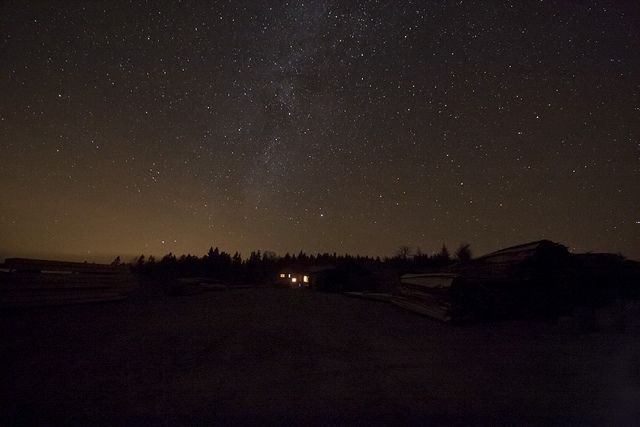'Seeds Of Life' Collected During Perseid Meteor Shower: Scientists Say Algae 'Can Only Have Come From Space'

Did a British research balloon pick up extraterrestrial life as it skimmed the stratosphere during the annual Perseid meteor shower?
The answer is yes, absolutely – at least if you trust astrobiologist Chandra Wickramasinghe and his fellow scientists, who claim that the microscopic algae detected on the balloon’s sterile slides “can only have come from space.” In a study presented at the Instruments, Methods, and Missions for Astrobiology conference in San Diego, Calif. last month, the team theorized that the seeds are constantly transported between planets by asteroids, comets, and other cosmic wanderers.
“Biological entities of this nature have not previously been reported occurring in the stratosphere,” Wickramasinghe said, speaking to The Daily Mail. “The entities varied from a presumptive colony of ultra-small bacteria to two unusual individual organisms - part of a diatom frustule and a 200 micron-sized particle mass interlaced with biofilm and biological filaments.”
The presence of stratospheric life would back the panspermia hypothesis – the popular astrobiological view that life is promulgated by itinerant repositories of microorganisms that “impregnate” planets. The theory, of which Wickramasinghe is a leading proponent, holds that life on Earth is neither the product of a divine prime mover nor spontaneous biopoesis, but a single, catalytic organism brought here from outer space. In panspermia, alien life is not only possible – it is necessary.
“By our current understanding of the means by which such particles can be transferred from Earth to the stratosphere they could not - in the absence of a violent volcanic eruption occurring within a day of the sampling event - make such a journey,” Wickramasinghe explained. “If there is no mechanism by which these biological entities could be elevated from Earth to the stratosphere then it must have arrived from above the stratosphere and have been incoming to Earth.”
A similar discovery made headlines yesterday when scientists announced that extensive analyses of a meteorite sample from 2012 revealed a number of organic molecules. The team said that the fascinating chemistry is similar to that of the hypothetical prebiotic soup – the chemical precursors of organic life. Like Wickramasinghe’s algae, the molecules represent rudimentary evidence that we may not be alone in the universe.



























